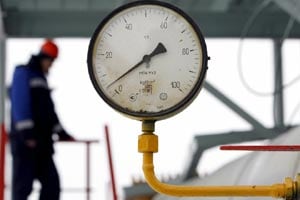Sixteen years ago, the Centre promised market-determined pricing for domestic natural gas but ended up not only fixing its price but also deciding to whom the hydrocarbon was to be sold. The byzantine regulations on the gas economy has over the years precipitated complex litigation and even international arbitration. So much so that when the petroleum ministry on Monday vowed again to give “pricing and marketing freedom” to firms that would secure contracts under a new regime, few were convinced.
As per the draft contract put out by the ministry for public comments, “It is proposed to provide pricing and marketing freedom for the natural gas to be produced from the areas to be awarded under the new contractual and fiscal regime in order to incentivise production from these areas.” Article 21.6.1 of the model Production Sharing Contract 2000 for natural gas developers also provided for such independence, saying: “The Contractor shall endeavour to sell all natural gas produced and saved from the contract area at arm’s-length prices to the benefits of parties to the contract.”
Of course, the subsequent provisions diluted it: “Article 21.7: The formula or basis on which the prices shall be determined pursuant to Article 21.6 shall be approved by the Government prior to the sale of Natural Gas… For granting this approval, Government shall take into account the prevailing policy, if any, on pricing of Natural Gas including any linkages with traded liquid fuels, and it may delegate or assign this function to a regulatory authority as and when such an authority is in existence and in place.”
The new new regime will also mark a shift from the current model where developers grab earmarked acreages by bidding the maximum work programme to a revenue-sharing regime, where the bidders would indicate the quantity of oil and gas they will share with the government at various stages of production along with the rates. The government and Reliance Industries had found themselves mired in litigation as the former refused to allow the cost recovery to the extent demanded by the latter from its KG-D6 block, once India’s most prolific gas asset. In the revenue-sharing model, the government’s remuneration would be de-linked from the quantum of investment made in developing the block and extracting the hydrocarbons. Under the present production-sharing contract (PSC) system, which has been applicable for blocks auctioned under all the nine new exploration licensing policy or Nelp rounds, an explorer gets to recover costs incurred during the exploration cycle before sharing profits with the government.
In addition to the offer of free pricing of gas, the new model also brings in a uniform licensing model — which means under a single contract, drilling of all forms of hydrocarbons, from oil and gas to shale gas, coal-bed methane and gas hydrates, could be done. A similar model will be tried for the auctioning of 69 small and marginal fields given away by ONGC and Oil India. Also, the developers will be able to choose from a cluster of fields on which data will be made available under an Open Acreage Licensing Policy.
Unlike the current fiscal regime on a production-sharing basis and pre-tax investment multiple and cost recovery-linked payment, under the new model, each bidder will quote the share (percentage) of revenue he will share with government against two revenue scenarios — first, when revenue is less than or equal to the lower revenue point and second, when revenue is more than or equal to higher revenue point. The government’s revenue share falling between the lower and higher revenue points will be interpolated on a linear scale.
Currently, the government not only decides the gas price but also dictates whom to sell the product to. This has led to a scenario when even the public sector GSPC and ONGC don’t find it viable to pump the gas they have discovered in their deepwater basin in the Krishna-Godavari area. The price of domestic natural gas is currently decided based on a formula approved by the Modi government in October last year, which is linked to select global indices. From October 1, the rates fell to $4.24 per million British thermal units till March 31, 2015, against $5.05/mmBtu in the previous six months.
FE recently reported that the finance ministry has rejected for the second time in less than six months the petroleum ministry’s proposal for allowing firms to sell up to half of their output from geologically challenging areas at market-determined rates. North Block feels that the domestic gas market is not mature enough for free pricing.
Under the Nelp series, PSCs for 254 exploration blocks have been signed for blocks awarded in on-land, shallow and deepwater areas. However, a few blocks have come to production stage without any substantial contribution to domestic output.
Under the nine rounds of Nelp bidding held so far, the committed exploration investment is about $11.73 billion. Against this, $12.51 billion has been expended by the contractors for exploration activities, mainly 2D/3D seismic survey and exploratory drilling in the awarded blocks. In addition, about $ 8.81 billion has been incurred by the contractors for carrying out development activities, mainly drilling and setting up of production facilities.



